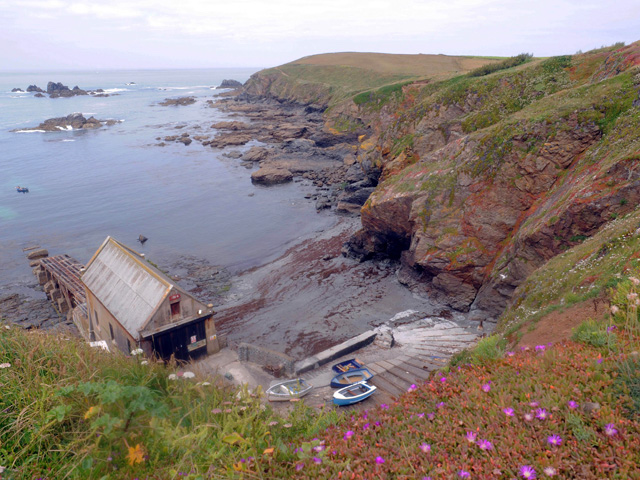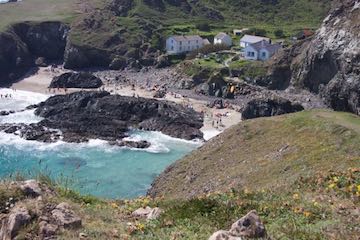As regular readers of this blog will know from my previous contributions, I am a runner. I run all over the place: coastpath, roads, field paths, in rain or shine. I have enjoyed some spectacularly wonderful runs on the Lizard, including the tough miles from Muliion to Lizard village, from Lizard point back to Gunwalloe, from Coverack to Lizard Point.
I have enjoyed moments of complete elation, dark moments of exhaustion, fear in the fog, joy in the sunshine, I have been too hot, too cold, wind blow and rain lashed – sometimes all this in the course of one run.
Runners, ramblers, bird watchers, botanists, landscape managers, farmers, dog walkers and everyone else who seeks out the Lizard to spend time there has probably felt some of the same things. Geographers sometimes talk about the ability of place to inspire strong feelings as its ‘affective qualities’.
 In this blog, I want to highlight a specific area of geographical research which tries to understand the affective qualities of place and our encounter with it. This is a type of research that draws on about forty year’s worth of work in humanistic and cultural geography, which argues that our encounter with place is as much through our bodies as through our minds. The affective qualities of a place are primarily linked to how it makes us feel. Of particular importance are the feelings that are beyond our ability to explain them. Imagine trying to explain a blush to someone who has never experienced one – it is an entirely pre-cognitive, physiological response to a stimulus which happens before you can make any kind of conscious, rational intervention to stop it. Similarly, the excitement that can accompany the first glimpse of the sea, the sense of wellbeing to be had from lying on the cliff top on a summer’s day, listening to the hum of insects and the sea crashing on the rocks, the exhilaration of a winter walk – all these are affective responses to the landscape and the elements.
In this blog, I want to highlight a specific area of geographical research which tries to understand the affective qualities of place and our encounter with it. This is a type of research that draws on about forty year’s worth of work in humanistic and cultural geography, which argues that our encounter with place is as much through our bodies as through our minds. The affective qualities of a place are primarily linked to how it makes us feel. Of particular importance are the feelings that are beyond our ability to explain them. Imagine trying to explain a blush to someone who has never experienced one – it is an entirely pre-cognitive, physiological response to a stimulus which happens before you can make any kind of conscious, rational intervention to stop it. Similarly, the excitement that can accompany the first glimpse of the sea, the sense of wellbeing to be had from lying on the cliff top on a summer’s day, listening to the hum of insects and the sea crashing on the rocks, the exhilaration of a winter walk – all these are affective responses to the landscape and the elements. This area of geographical enquiry that focuses on what are called ‘embodied’ responses is methodologically very challenging – how can one capture the feel of the salt spray stinging cold cheeks? The affective qualities of place are nevertheless very important because they form part of our attachment to place and our sense of place which in turn inspire us in a professional and personal lives to preserve, protect, and enjoy the amazing landscape of the Lizard.
This area of geographical enquiry that focuses on what are called ‘embodied’ responses is methodologically very challenging – how can one capture the feel of the salt spray stinging cold cheeks? The affective qualities of place are nevertheless very important because they form part of our attachment to place and our sense of place which in turn inspire us in a professional and personal lives to preserve, protect, and enjoy the amazing landscape of the Lizard.
